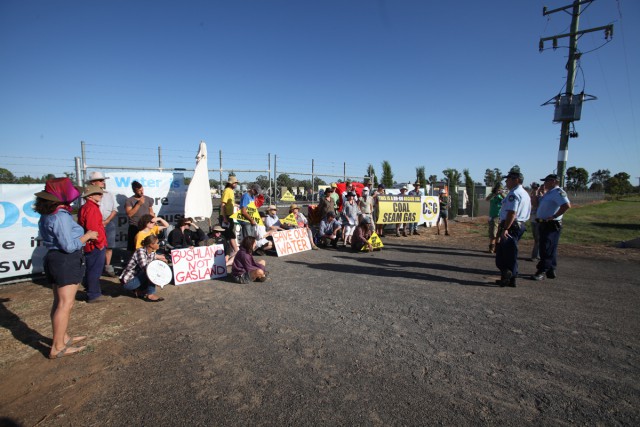 21 Aug 2017 – Environmental activists vandalised dozens of Commonwealth Bank branches to protest its investment in coal projects.
21 Aug 2017 – Environmental activists vandalised dozens of Commonwealth Bank branches to protest its investment in coal projects.
The protesters blacked out letters in the bank’s signs so they read ‘Coal Bank’ as part of an ongoing campaign against the financial giant.
Photos of the vandalised branches appeared on social media on Monday tagged with #coalbank with protesters bragging their handiwork.
 They claimed 25 branches were hit including Earlwood, Dulwich Hill, Bondi Junction and Paddington in Sydney, as well as in Adelaide and Newcastle.
They claimed 25 branches were hit including Earlwood, Dulwich Hill, Bondi Junction and Paddington in Sydney, as well as in Adelaide and Newcastle.
CBA is a heavy investor in the coal industry, which is worth more than $56 billion in export value last financial year and supports thousands of Australian jobs.
Environmental groups claimed CBA invested $8.86 billion last year and more than $240 billion since 2008, and want it to end immediately.
 Environmental groups claimed CBA invested $8.86 billion last year and more than $240 billion since 2008, and want it to end immediately
Environmental groups claimed CBA invested $8.86 billion last year and more than $240 billion since 2008, and want it to end immediately
The pressure is aimed at altering the bank’s upcoming new climate policy, which protesters hope will move its investment towards renewable energy.
‘It claims to support action on climate change and keeping warming to below 2 degrees, but at the same time loans billions of dollars to fossil fuel projects that are polluting our world and making global warming worse,’ a petition site wrote.
CBA billboards were also defaced in Sydney, with protesters editing them to spread anti-coal messages instead of financial ones.


One replaced a family in front of their house with the slogan ‘find the path to your property dream’ with a picture of them in an inflatable raft with the words ‘find your path to higher ground’.
Another put a gas mask on a man with the words ‘every tonne of coal is doing you damage’.


The ongoing campaign is aimed at altering the bank’s upcoming new climate policy, which protesters hope will move its investment towards renewable energy

‘CommBank has the power to help protect the Great Barrier Reef for our kids and grandkids by not investing in destructive coal projects,’ a protest site wrote
‘There is obviously growing community concern about the Commonwealth bank’s hypocrisy on fossil fuel finance,’ it said.

‘Despite their stated support for the goals of the Paris agreement, CommBank lent more money to fossil fuels last year than any of the other big four banks.
The vandalism follows demonstrators in July shutting down every CBA branch in Newcastle to protest against the bank’s funding of the controversial Adani mine.
Dozens chanted anti-Adani slogans while forcing the bank to close their 11 locations for the day.

It continues a bad couple of months for the bank after it was accused of failing to report $77 million in transactions linked to money laundering and terrorism.
Earlier this month it was then revealed criminals allegedly deposited more than $44 million into CBA accounts, which were not reported due to a ‘system error’.



